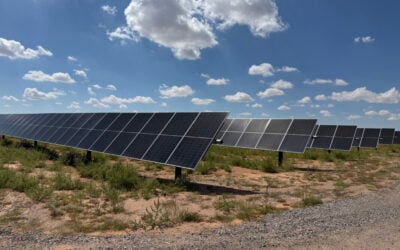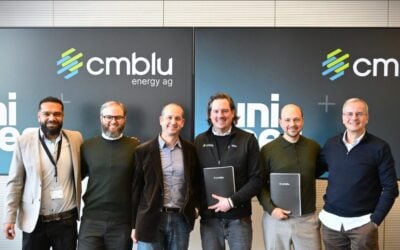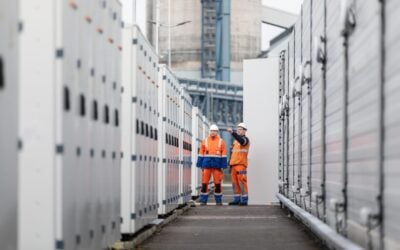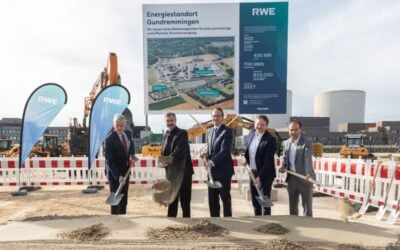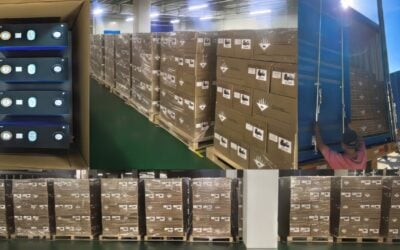A large scale ‘battery park’ has gone online in West Meklenberg, Germany, designed to stabilise grid frequency in an area where a large amount of power generation comes from wind and other renewable energy.
The battery power plant has a rated power output of 5MW and a capacity of 5MWh and is fully automated. It was built by renewable energy and battery system specialist Younicos, with lithium-ion cells supplied by Samsung SDI. The project has been delivered for the regional subsidiary of utility company WEMAG.
WEMAG’s grid has around 800MW of renewable energy capacity installed, which generated around 80% of the energy used in the company’s serviced grid area. According to Younicos, the utility expects this figure to rise to 100% this year. The capacity and output of the park can be doubled to 10MWh and 10MW, respectively.
Germany’s vice chancellor Sigmar Gabriel (second from left), who is also economy and energy minister, at the opening of the park on Tuesday, pictured with younicos executives and local minister Erwin Sellering. Image: younicos
At present the West Meklenberg battery park houses 25,600 lithium-manganese-oxide cells, connected to the grid by medium voltage transformers, capable of boosting the current from 480v up to 20kv and back again. Younicos’ software drives the system, controlling the interaction of batteries between each other and with the grid, as well as ensuring the batteries are suitably charged, both to offer enough capacity to perform its required tasks and to regulate charging to optimise battery life. The system will be housed in a purpose- built hall next to a 110kv substation and will be connected to both the local grid and the 380kv high voltage transmission grid.
Try Premium for just $1
- Full premium access for the first month at only $1
- Converts to an annual rate after 30 days unless cancelled
- Cancel anytime during the trial period
Premium Benefits
- Expert industry analysis and interviews
- Digital access to PV Tech Power journal
- Exclusive event discounts
Or get the full Premium subscription right away
Or continue reading this article for free
Younicos claims the 5MW system can compete with a 50MW gas turbine in frequency regulation markets. This will be put to the test as the commercialised system will participate in frequency regulation markets, as it balances the discrepancies between production and consumption of energy.
Younicos was contracted last year to install a large-scale battery test project in Leighton Buzzard, England with a 6MW capacity and was also awarded a tender to install a similar, 1MW/1MWh project on the Italian island of Sardinia. Each project also uses Samsung SDI cells.
The park houses 25,600 Samsun SDI cells, which are guaranteed for 20 years by the manufacturer. Image: younicos

